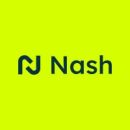When Ihssan Tinawi walks around his San Francisco neighborhood, he often catches a glimpse of deliveries left at his neighbors’ doorsteps. Just as frequently, he immediately recognizes the package’s branding as one of Nash’s growing list of customers.
“It’s amazing to see the impact Nash has had on not only customers but of my own awareness of the delivery ecosystem,” Tinawi said. “Each time I see one of those packages, I’m reminded of the impact we are making.”
Nash’s platform powers last-mile delivery, logistics and operations for businesses selling flowers, food, and everything in between, whether between stores and their customers, warehouses or other franchises.
The work was well-timed as the pandemic rapidly advanced the need for home delivery services. “Everyone wants delivery — and they want it super fast,” Tinawi said. And that immediacy is empowering.
“I know many engineers who build something and never see the impact of the work. That’s not the case at Nash. We see the impact right away.”
Built In heard from Tinawi about the opportunities and advancements ahead for Nash, their products and their team.
What’s your role? What are your responsibilities?
I’m a software engineer. Our engineering team is still very flat and in “divide and conquer” mode, so there are a lot of opportunities to take ownership and grow my skills. Lately, I’ve been very focused on developing a product that will streamline onboarding for our customers and set them up for immediate success. My day is split between planning calls and building new features. I also really enjoy doing customer-facing calls so I can learn first-hand how they’re interacting with the features I’ve built. It shows me what I need to focus on, and I share that insight with the rest of the team.
As one of the first engineers, I can say that my day-to-day looks a lot different than what it did a year ago now that our product has matured. There are many more customers to build for!
What have been some stand-out moments for you at Nash?
One of the coolest moments of my career so far was when our team was awarded the Ron Conway Economic Empowerment award by Ron Conway together with Michael Seibel at YCombinator and Brian Chesky, the CEO of Airbnb. They made a video for us and highlighted our team on the Airbnb website. It was really cool to hear from them about how they think Nash has the potential to help millions of businesses around the world with the product we’re building.
What role did you play in developing and launching the product?
When I joined as one of the first engineers last year, we already had a really strong foundation for our product, but we had a lot more to do. A lot of the work is incremental and compounds into great features over time. I’ve spent a lot of time building one feature, which leads into building another feature and then another — and before I know it, I’ve created this roadmap of checkpoints that have turned into a full fledged product in itself. My current work with provider onboarding is a great example of that process.
Nash’s tech stack
What obstacles did you encounter along the way? How did you successfully overcome them?
Delivery is a field where there is virtually no margin for error. We’ve all experienced late food delivery — if it’s more than 30 minutes past the estimated time, the classic “hangry” mood kicks in, and you consider never ordering again. We need to make every delivery count.
Holding ourselves to this standard requires discipline. Balancing investigating delivery issues to help our customers and maintaining focus on long-term goals is quite challenging, but by rotating an on-call engineer and being strategic about our weekly commitments, we are able to help customers and accomplish our roadmap milestones.
How does your team collaborate cross-functionally to support the product?
Nash is building software that takes what a giant dispatch team does every day and automates it at hyper scale. We have built and are building the technology that replaces and complements our operations and customer success team members. I’m constantly interacting with those teams to get insights and feedback that I can incorporate into the product I am building.
“At Nash, we can measure the engineering team’s success based on how busy the operations team is. Our goal is to build a product that makes it so they’re never swamped or stressed.”
How is Nash different than other companies in the industry?
Our goal is to really get everyone together at the same table. Delivery is not a zero sum game. We want to work with everyone — every business that does delivery and every fleet that can deliver. That means working with a lot of tech platforms that another company might think of as a competitor. That’s just not the way we operate. We know there are many strengths of other companies in the space that we can learn from to make Nash even better, which in turn helps other businesses be successful.
What makes Nash’s internal culture stand out is that everyone is truly genuine and hardworking. We care about improving the product, and as a result, everyone is incredibly mission-driven and takes ownership of their responsibilities. Even though the team has grown from four to 40 employees since I joined, it still carries that sense of, “We are a small company, and we’re here to build our product and identity while helping businesses grow.”








